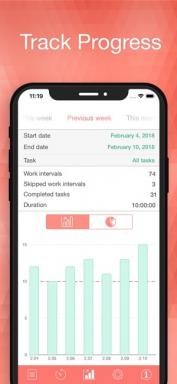Business analyst - course 107,600 rub. from Yandex Workshop, training 7.5 months, Date: December 14, 2023.
Miscellaneous / / December 03, 2023
A business analyst is a specialist who connects the areas of business and IT. Namely:
Collect requirements
Learn how to identify problems, decompose them and propose solutions, and critically approach change requests
Describe business processes
Get acquainted with the notations to describe the work within the project for the team, the customer and the business analyst himself
Predict results
The implementation of any decisions has a certain effect on the product and its unit economics - you will learn to calculate the financial and non-financial results of changes
Assign tasks to the development team
You will learn how to write a detailed technical specification based on client requests, which will contain all the details for the development team
Work through user scenarios
You will learn how to collect audience requests and, based on them, offer options for convenient interfaces to the design team
Practice and feedback
From the very beginning of your training, you will complete practical tasks on the Workshop platform, and at the end of each block you will have an independent project to consolidate your knowledge. Experts and practitioners will check and comment on the work in detail.
Full cycle of work of a business analyst
During the course, you will collect and describe customer requirements several times, present your solutions with visualization and calculation of financial benefits. During the course you will be able to conduct about 20 interviews on your own. This will help you prepare for one of the main stages of your work - communicating with business clients.
Development of soft skills
A business analyst needs to be able to communicate, listen and hear, think critically and work in a team. These skills are more difficult to develop than hard skills, so they increase your value as a specialist in the labor market. The course program is designed in such a way that you can practice these skills in practice.
Introduction to Business Analytics
Free part 1 week
Understand the role of a business analyst in projects and products.
Sprint 1. The role and participation of a business analyst in projects and products
- Topic 1. Software life cycle, development stage as part of the software life cycle
- Topic 2. Roles in the project
- Topic 3. Differences between a business analyst and other analysts. How the work is structured and what the results are
Existing Solution Support
1 module 8 weeks
You will find yourself in the everyday life of a business analyst who has just gotten a job.
You will have to explore the principles of operation of the current solution in the product, determine the vector of its development and analyze the results of the implemented changes.
Sprint 2. Introduction to the IT solution
- Topic 1. What does an IT solution consist of?
- Topic 2. Immersion in the principles of working in IT
- Topic 3. How work algorithms are described
- Topic 4. Where to start researching documents
Sprint 3. Adding functionality
- Topic 1. User Story as the basis of requirements
- Topic 2. How to find suboptimalities in a solution
- Topic 3. How to understand that changes are positive (measure)
- Topic 4. What are processes
- Topic 5. Why is it important to describe everything?
Sprint 4. Completion and protection
- Topic 1. First results and their validation
- Topic 2. Working with prototypes
- Topic 3. Use Case from the user side
- Topic 4. Metrics Analysis (Excel)
- Topic 5. Defending results to the “team”
Project: Grocery delivery
Using existing artifacts, you have to figure out what kind of improvements the customer wants, work out the improvements and protect them.
Implementation of an existing product
Module 2 12 weeks
You have to implement the product into the company's process.
You'll learn how to conduct interviews, describe processes and requirements, and learn how to make sure everything works correctly.
Sprint 5. Gathering requirements
- Topic 1. What are business requirements
- Topic 2. How to collect requirements (preparing for an interview)
- Topic 3. Interview Skills
- Topic 4. How not to forget something important
Sprint 6. Selecting main objects
- Topic 1. What is important to us?
- Topic 2. How to structure information
- Topic 3. Selecting objects
- Topic 4. SQL Theory and Practice
- Topic 5. Object Models
Sprint 7. Description of future processes
- Topic 1. Notations in the arsenal of a business analyst
- Topic 2. BPMN
- Topic 3. As-is and to-be in processes
- Topic 4. Validation with users
Sprint 8. Description of requirements
- Topic 1. What other requirements are there?
- Topic 2. Identifying functional requirements
- Topic 3. Identifying non-functional requirements
- Topic 4. Design requirements and design tasks
Sprint 9. Testing
- Topic 1. How to check that everything is done correctly
- Topic 2. Different Testing Approaches
- Topic 3. PMI and PSI for testing
Project: CRM
A project where there are many participants in the process and you take on part of the work yourself. You have a product, you know how it works, and it needs to be built into the company's processes.
Custom development from scratch
Module 3 4 weeks
Your task will be to find out the client's needs and pain points, propose a solution, protect it and describe instructions for end users.
You will also learn to calculate the effect of introducing changes in money.
Sprint 10. Gathering requirements under conditions of uncertainty
- Topic 1. Where to start a series of interviews
- Topic 2. Identifying pain points of different users
- Topic 3. Dealing with Contradictions (Critical Thinking)
- Topic 4. How to reach your goal (5 Whys technique and others)
- Topic 5. UML (activity diagram for development, use case journey map)
Sprint 11. Calculation of the economic effect and preparation for development
- Topic 1. Why are we making changes?
- Topic 2. How to calculate basic indicators
- Topic 3. Basic unit economics
- Topic 4. Non-financial results (tech. breakthrough, PR, company value)
- Topic 5. How to build relationships with development
- Topic 6. Epic and Task. Task acceptance criteria, weight and prioritization
Diploma
3 weeks
A project where you manage the entire process yourself. Larger volume of decision making and number of artifacts.
Diploma project: Logistics
Custom development awaits you from scratch: you need to find out what the client wants, what problems and points of improvement there are, and understand what solutions can be offered.
Additional block
Module 4 2 weeks
You will learn how to defend a product to the customer: visualize customer data in BI, present implementation successes and results, as well as how to describe user instructions for end users users.
Sprint 12. User protection and training
- Topic 1. Different data for different tasks
- Topic 2. Storytelling Basics
- Topic 3. Charts and BI
- Topic 4. Slide presentation
- Topic 5. Acceptance of the project, “what after the tests?”
- Topic 6. User instructions
- Topic 7. Admin guide
- Topic 8. Documentation support
Project: Grocery delivery
Using existing artifacts, you have to figure out what kind of improvements the customer wants, work out the improvements and protect them.



